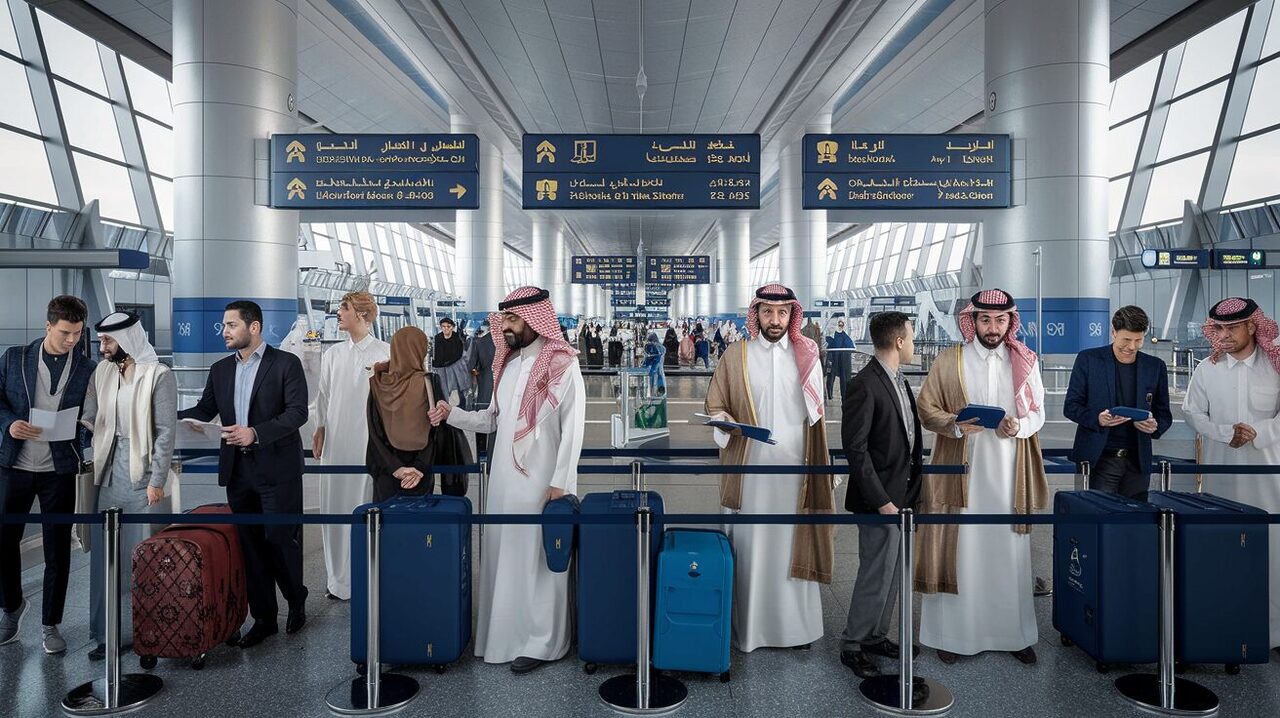The recent decision by Saudi authorities to target nationals from 14 countries, including Algeria, Morocco, and Tunisia, has raised significant concerns regarding travel regulations. Effective from February 1, 2025, these changes will result in the suspension of multiple-entry visit visas for affected citizens, limiting them to single-entry visas only. This stringent policy aims to address issues related to unauthorized pilgrimages and immigration violations while enhancing oversight over travel to the Kingdom.
As of February 1, 2025, the Saudi authorities have implemented a significant policy shift, suspending multiple-entry visas for travelers from 14 specific nationalities, including those from Algeria, Morocco, and Tunisia. This change is aimed at preventing misuse of visa options and enhancing the regulatory framework for pilgrimages and travel into the country.
Saudi Authorities Target 14 Nationalities
The recent action taken by Saudi Arabia affects nationals from Algeria, Bangladesh, Egypt, Ethiopia, India, Indonesia, Iraq, Jordan, Morocco, Nigeria, Pakistan, Sudan, Tunisia, and Yemen. Travelers from these nations will now be limited to a single-entry visa valid for a maximum stay of 30 days.
Impact on Visa Applications
Under the new regulations, applicants will experience a shift from being able to apply for a multiple-entry visa for one year to encountering a status labeled “visa holder: send to embassy” during the online application process. This indicates that applicants must now finalize their visas in person at the respective embassy, creating an additional logistical step that must be carefully navigated.
New Visa Limitations
Previously, travelers could enjoy the flexibility of multiple-entry visas which facilitated easier navigation for tourism, business, and family visits. The decision to limit issued visas to single-entry ones means that travelers must meticulously plan their itineraries, as a breach of the new regulations may lead to penalties and administrative complications.
Reasons Behind the Policy Change
The Saudi authorities cited a necessity to combat abuse stemming from long-stay visas, where some individuals used these permits to undertake the Hajj pilgrimage without proper authorization. The policy aims to enhance safety and accountability, especially in light of past tragedies, such as during the Hajj 2024 incident that resulted in casualties due to unregulated participation.
Future of Visa Regulations
Despite the current measures being presented as temporary, the absence of a set date for reevaluation leaves travelers in a state of uncertainty. It remains to be seen how the situation will evolve, particularly as the government assesses the ramifications of these new regulations.
Increased Migration Control
Alongside the visa suspensions, Saudi Arabia has begun implementing more stringent migration controls. Several reports indicate that illegal migrants from these 14 countries, including Morocco, have faced arrests and expulsions. Furthermore, a new permit system is required specifically for individuals wishing to undertake the pilgrimage to Mecca.
Summary of Key Changes
Key changes for travelers from the 14 affected countries include:
– Suspension of multiple-entry visas
– Introduction of single-entry visas valid for up to 30 days
– Potential penalties for non-compliance with new rules
– Necessity of a permit for participating in the Hajj
– Heightened border controls and increased deportations of illegal migrants
Key changes for travelers from the 14 affected countries include:
– Suspension of multiple-entry visas
– Introduction of single-entry visas valid for up to 30 days
– Potential penalties for non-compliance with new rules
– Necessity of a permit for participating in the Hajj
– Heightened border controls and increased deportations of illegal migrants
This tightening of regulations overtly demonstrates Saudi Arabia’s intention to methodically oversee access to its territory, particularly with respect to the pilgrimage culture and the responsibilities accompanying it.
Navigating the New Visa Process
It has been reported that, despite the mentioned restrictions, travelers from these nationalities may still be eligible for a visa upon arrival. For those planning to visit Saudi Arabia, confirming this option with the airline is essential, as some low-cost carriers might be unaware of these provisions.
Impact of Visa Policy Changes
- Countries Affected: Algeria, Morocco, Tunisia, and 11 others
- New Visa Type: Single-entry visas
- Duration: Valid for 30 days
- Previous Visa Type: Multiple-entry visas suspended
- Enforcement Date: February 1, 2025
- Reason for Change: Curbing misuse and unauthorized pilgrimages
- Migration Control: Stricter controls at borders
- Risks: Penalties for non-compliance
- Pilgrimage Permit: Required for attending Hajj
The Saudi authorities have implemented a significant change in their visa policy affecting travelers from 14 nationalities, including those from Algeria, Morocco, and Tunisia. Starting from February 1, 2025, multiple-entry visas will be suspended for these countries. Consequently, only single-entry visas, valid for a maximum of 30 days, will be issued. This drastic measure aims to combat visa abuse and control Hajj pilgrimages

Hello! I’m Elisa, a 45-year-old travel companion with a passion for exploring new places and cultures. With years of travel experience under my belt, I thrive on creating memorable journeys for my clients. Let’s embark on an adventure together!





